When a Narcissist Knows You Love Him: The Shift in Dynamics
 When a person with narcissistic personality disorder senses that someone loves them, the dynamics of the relationship can shift significantly. Narcissists have a tendency to thrive on admiration and attention, and love offers them abundant supply. The realization that another individual harbors deep feelings for them may amplify certain characteristics of the narcissist's behavior, sometimes […]
When a person with narcissistic personality disorder senses that someone loves them, the dynamics of the relationship can shift significantly. Narcissists have a tendency to thrive on admiration and attention, and love offers them abundant supply. The realization that another individual harbors deep feelings for them may amplify certain characteristics of the narcissist's behavior, sometimes […]When a person with narcissistic personality disorder senses that someone loves them, the dynamics of the relationship can shift significantly. Narcissists have a tendency to thrive on admiration and attention, and love offers them abundant supply. The realization that another individual harbors deep feelings for them may amplify certain characteristics of the narcissist's behavior, sometimes leading to intensified manipulation or charming tactics to maintain control and the flow of admiration their way.
Understanding the behavior of a narcissist in the context of a loving relationship is crucial for the emotional health of the partner involved. A narcissist's response to love and affection can be complex; while they often seek validation, they may also react unpredictably when faced with genuine emotions. Partners of narcissists need to be aware of the signs of such behavior and the potential impact it can have on their well-being.
Strategies for coping with the challenges of loving a narcissist are also important. Recognizing the signs of manipulation, protecting one's self-esteem, and maintaining clear boundaries can help mitigate some of the adverse effects of being in a relationship with a narcissist. It is necessary to approach such relationships with a clear understanding of the difficulties that may arise and how a narcissist may respond to love and affection.
Key Takeaways
- Narcissists can intensify control mechanisms when they know they are loved.
- Awareness of a narcissist's response to affection is crucial for the partner's emotional health.
- Coping strategies are key to navigating a relationship with a narcissist.
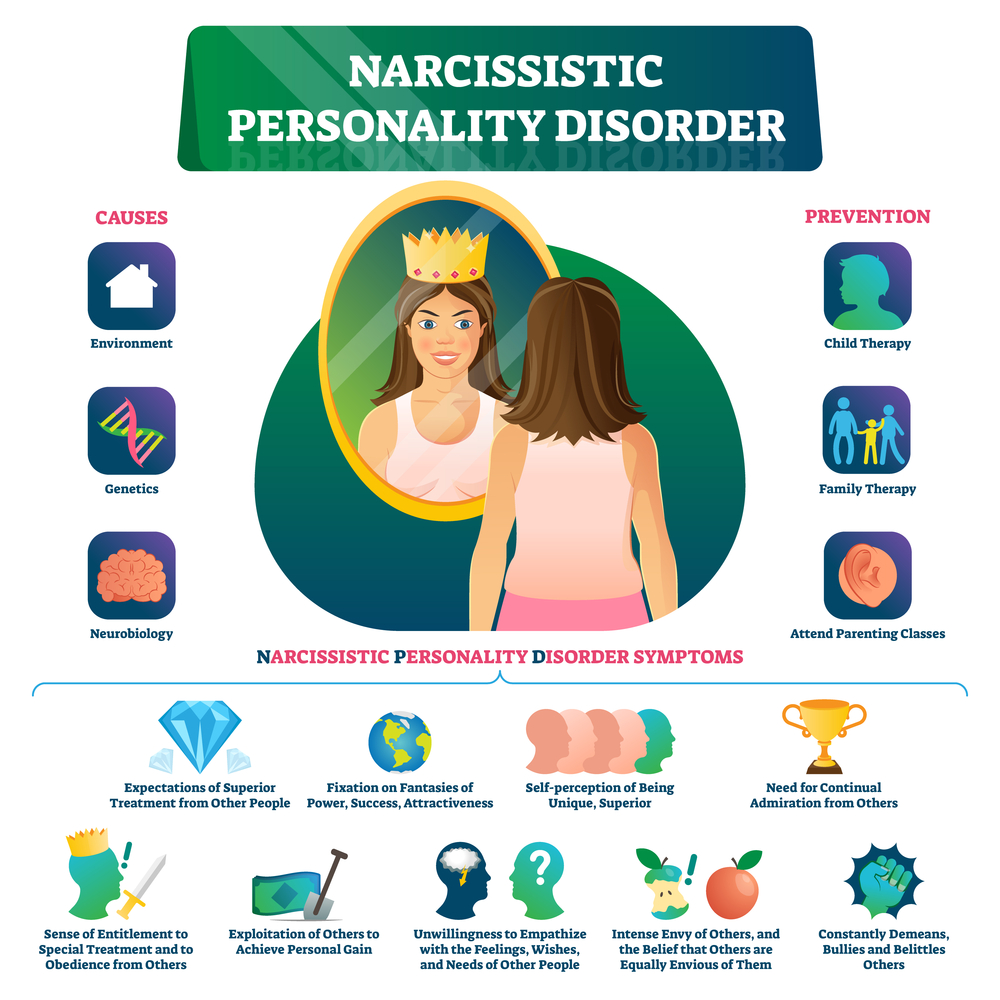
Understanding Narcissism
Before diving into the complexities of relationships with narcissists, it's crucial to grasp the essence of narcissistic personality disorder and the fundamental traits that define it.
Defining Narcissistic Personality Disorder
Narcissistic Personality Disorder (NPD) is a mental condition characterized by a long-term pattern of exaggerated feelings of self-importance, a deep need for excessive attention and admiration, and a lack of empathy for others. However, behind this mask of extreme confidence lies a fragile self-esteem that's vulnerable to the slightest criticism. Key Takeaway: NPD involves a complex mix of emotions and behaviors that are detrimental to forming healthy relationships.
Key Personality Traits of Narcissists
Narcissists exhibit consistent characteristics that can impact their ability to love and empathize. These include:
- A grandiose sense of self-importance: They often overestimate their abilities and inflate their accomplishments, expecting to be recognized as superior.
- Preoccupation with fantasies of success, power, brilliance, beauty, or ideal love: Narcissists indulge in grandiose fantasies that shield them from reality.
- Belief they are special and unique: They commonly believe they can only be understood by, or should associate with, other special or high-status people or institutions.
- Need for excessive admiration: Narcissists require constant attention and validation from others.
- Sense of entitlement: They unreasonably expect special treatment and unquestioning compliance with their expectations.
- Interpersonally exploitative behavior: Narcissists often take advantage of others to achieve their ends.
- Lack of empathy: They're unable or unwilling to recognize or identify with the feelings and needs of others.
- Envy of others or belief that others are envious of them: They might display bitterness and resentment when others succeed.
- Arrogant and haughty behaviors or attitudes: Their demeanor is often aloof or seemingly superior.
These traits create a complex personality structure that can pose significant challenges in mutual understanding of love and emotion. Key Takeaway: Narcissism deeply influences interpersonal relations, with a strong impact on emotional connections and feelings of empathy.
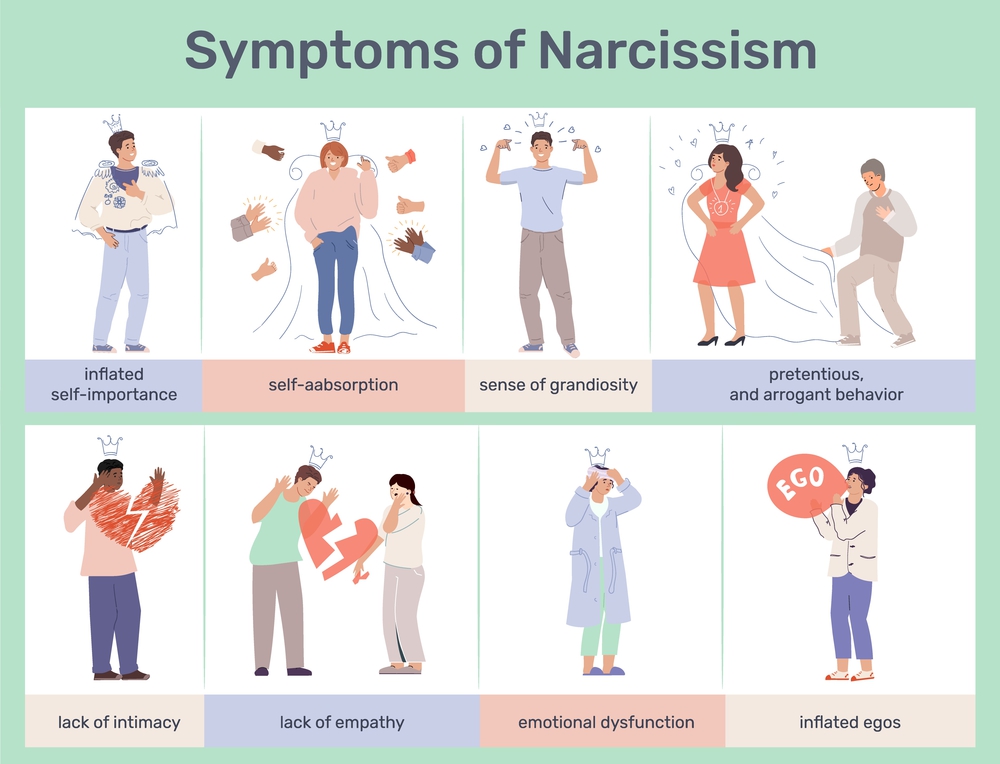 The Dynamics of Love and Narcissism
The Dynamics of Love and Narcissism
The intricate relationship between love and narcissism unfolds where affection meets ego. Narcissists perceive love uniquely, often reflecting their emotional needs and lack of empathy.
Narcissists' Approach to Love
Narcissists often view love as a transactional dynamic where their needs are paramount. Love, an emotion centered around connection and vulnerability, is translated by a narcissist into a means of validation.
- Validation: They require constant admiration and may use love to fulfill this craving.
- Control: Narcissists may use affection as a tool to maintain dominance in the relationship.
Narcissists tend to interpret vulnerability as weakness, steering clear of genuine emotional exposure.
Emotions that bolster a narcissist's ego are embraced, while those that do not are often dismissed or manipulated.
- Emotional Recognition: They may recognize love as an emotion but not value its depth.
- Transactional Bonds: Relationships for narcissists can be more about power and less about mutual support.
In real love, individuals seek a balanced exchange of care and consideration, contrary to a narcissist's one-sided perspective.
Key Takeaway: Narcissists often engage in love for self-serving reasons, avoiding true emotional vulnerability.
The Role of Emotions and Empathy
Empathy is vital in nurturing real love, as it allows individuals to understand and share the feelings of others. For narcissists, empathy is often in short supply, impacting how they connect emotionally.
- Empathy Gap: Narcissists may struggle to share or understand their partner's emotions genuinely.
- Superficial Emotions: They might display appropriate emotions without fully experiencing them.
This disconnection from empathy can lead to relationships that lack emotional depth and understanding.
Love requires the interplay of complex emotions, but narcissists' emotional spectrum can be limited.
- Self-focus: Emphasizing their feelings can result in neglecting their partner's emotional needs.
- Emotional Intelligence: A deficiency in this area means they may misinterpret or ignore emotions that do not serve their agenda.
Authentic love involves a deep empathic connection, creating a profound emotional bond that is typically absent in relationships with narcissists.
Key Takeaway: Empathy deficit in narcissists leads to a superficial emotional connection, hindering the development of true love in relationships.
 Signs of Narcissists in Relationships
Signs of Narcissists in Relationships
In relationships with narcissists, a partner may encounter subtle yet consistent patterns of manipulation and control. These signs can be pivotal in recognizing the dynamics of the interaction.
Patterns of Manipulative Behavior
Narcissists in relationships often display certain behaviors that can manipulate their partners to maintain power and attention. Key behaviors include:
- Gaslighting: Convincing their partner to question their reality or sanity.
- Intermittent Reinforcement: Mixing criticism with occasional praise creates an addictive cycle of hope and confusion.
- Projecting Faults: Accusing their partner of their shortcomings to deflect responsibility.
Key Takeaway: Recognizing patterning behaviors helps in understanding the psychological maneuvers a narcissist may employ.
Recognizing Narcissistic Control Tactics
The strategies narcissists use for control often revolve around affection and esteem. Look out for:
- Conditional Love: Affection and approval are given only when the partner conforms to their expectations.
- Isolation Techniques: A gradual process of estranging the partner from friends and family to limit outside influences and perspectives.
- Monopolizing Time: Insisting on constant attention and companionship to keep their partner focused on the narcissist's needs.
Key Takeaway: Awareness of control tactics is crucial for those entangled in a relationship with a narcissist. It facilitates the understanding of the dynamics at play and aids in seeking support or intervention if necessary.
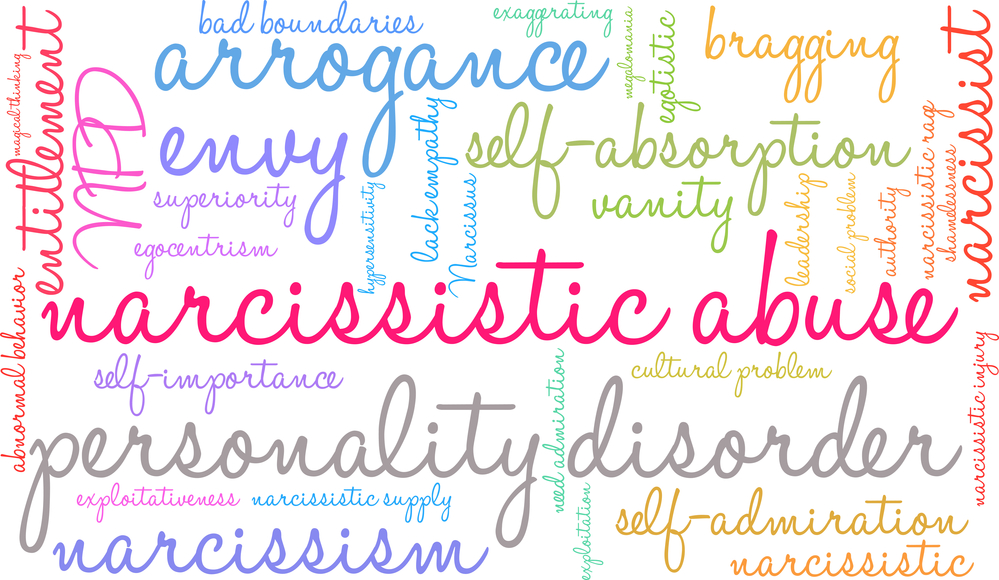 Impact on Partners
Impact on Partners
When a narcissist recognizes their partner's love for them, the dynamic within the relationship may shift, often resulting in emotional challenges for the partner.
Effects of Narcissistic Abuse on Partners
Victims of narcissistic abuse can experience a wide array of psychological effects that can be deeply scarring. These might include:
- Decreased self-esteem: Continuous criticism and belittlement by a narcissist can lead to a significant reduction in one's self-worth.
- Anxiety and depression: The unpredictability of a narcissist’s behavior can create a stressful environment, often leading to anxiety or depression in partners.
- Isolation: Narcissists may attempt to isolate their partners from friends and family as a control strategy.
- Emotional dependence: Over time, the partner may become emotionally dependent on the narcissist for validation and approval.
Key takeaways include recognizing the broad spectrum of negative emotions and psychological states partners might endure, each potentially requiring specific support and compassion to overcome.
Codependency and Boundary Issues
Relationships with narcissists often lead to problematic patterns such as codependency and poor boundary setting, which manifest in ways such as:
- Enmeshment: Partners might lose sight of where they end, and the narcissist begins, leading to an unhealthy blurring of identities.
- Difficulty in stating needs: Those involved with narcissists may find it hard to articulate and assert their own needs, fearing rejection or conflict.
- Rescuer syndrome: A partner might believe it's their responsibility to fix the narcissist, perpetuating a one-sided dynamic where their own needs remain unmet.
Victims might benefit from strategies like seeking therapy, joining support groups, or engaging in self-care practices that reinforce their right to healthy boundaries and independent identities.

Reactions to Affection and Admiration
When a narcissist perceives that someone loves them, the response can be complex and may align with their need for constant admiration and an inherent sense of superiority.
The Narcissist's Need for Admiration
- Key Takeaway: Narcissists thrive on admiration to bolster their ego.
Narcissists have a profound need for admiration to maintain their inflated sense of self. They often seek out attention in various forms to fulfill this requirement. Here's what is typically observed:
- They may react positively to compliments and praise, treating them as deserved recognition.
- They often surround themselves with individuals willing to provide the ongoing admiration they crave.
Dealing with Narcissistic Grandiosity
- Key Takeaway: Interactions with a narcissist should be handled with awareness of their sensitivity to ego-related matters.
Dealing with the grandiosity of a narcissist can be particularly challenging. They may react with disdain or dismissiveness if they feel their superiority is not adequately acknowledged. Here are some strategies to consider:
- Recognize their need for acknowledgment but maintain personal boundaries to avoid being manipulated.
- Give feedback carefully, balancing recognition of their achievements with truthful and constructive comments.
Interactions with narcissists often require a delicate balance between providing them with the admiration they seek and protecting one's self-worth and autonomy.
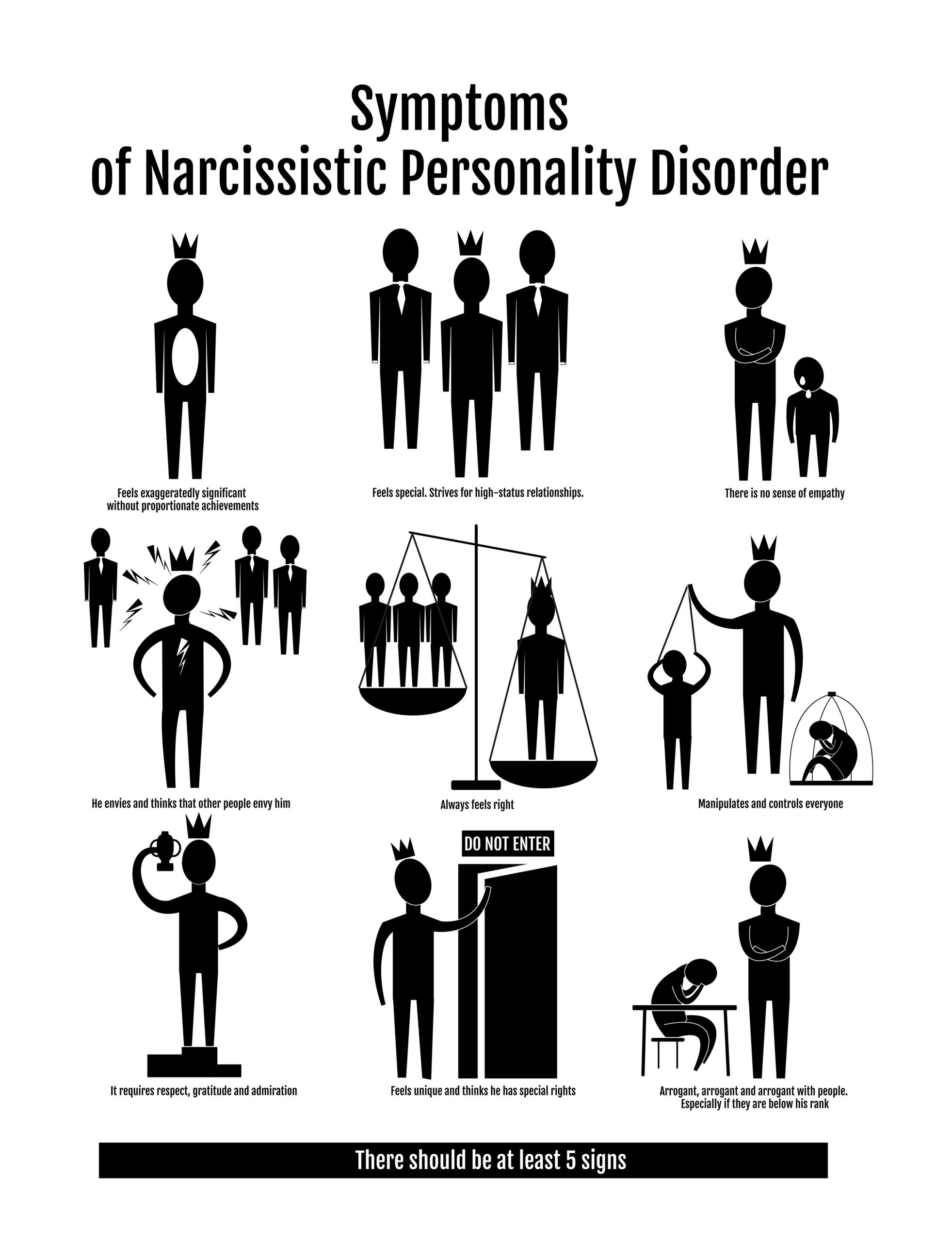 Consequences of Loving a Narcissist
Consequences of Loving a Narcissist
When someone loves a narcissist, they often face a unique set of emotional hurdles and may unknowingly become part of a very one-sided relationship dynamic.
Emotional Challenges and Pain
Emotional involvement with a narcissist typically leads to complex emotional challenges. Individuals often experience intense feelings of confusion, self-doubt, and pain as they juggle the constant demand for acceptance and the lack of empathy from the narcissist. Key points to consider include:
- Intensity of emotions: Love for a narcissist can evoke a rollercoaster of emotions, from highs of their occasional affection to lows of sheer neglect.
- Responsibility for feelings: Individuals may feel excessively responsible for maintaining harmony, while their emotions are often disregarded.
Key Takeaway: The emotional toll on individuals who love narcissists can be profound and disorienting, requiring significant emotional strength and self-awareness.
Transactional Relationships and Exploitation
A relationship with a narcissist can quickly turn transactional, where expressions of love are often exploited for the narcissist's gain. It is essential to be aware of such dynamics:
- Transactional nature: Affection and attention may only be received conditionally, often when the narcissist stands to gain something in return.
- Exploitative behavior: Narcissists might exploit the individual’s love to extract favors, bolster their ego, or gain material benefits.
Key Takeaway: Loving a narcissist can lead to being used as a means to an end, as the narcissist often exploits the caretaking ability or resources of their partner.
Coping Strategies for Partners
When engaging with a partner who has narcissistic tendencies, one becomes acutely aware of the need for self-care and boundary-setting. These strategies are essential for maintaining personal well-being.
Setting Healthy Boundaries
One's well-being often hinges on establishing and enforcing healthy boundaries. Here are a few tips:
- Identify Limits: Recognize personal limits and make them explicit. For example, decide what behaviors one will not tolerate and communicate them to the partner.
- Consistency is Key: Maintain consistency in enforcing these boundaries. Inconsistent boundary enforcement can lead to confusion and further push boundaries.
Key Takeaway: Knowing and enforcing personal boundaries helps to protect one's emotional health.
Seeking Support and Therapy
Building a support system and considering professional therapy are powerful steps in managing one’s mental health.
- Professional Guidance: Therapists specialized in narcissistic behavior can offer treatment strategies tailored to an individual's unique situation.
- Solidarity through Support Groups: Support groups provide understanding and validation from similar experiences.
Key Takeaway: Seeking support reinforces one's capacity for growth and resilience amidst challenges.
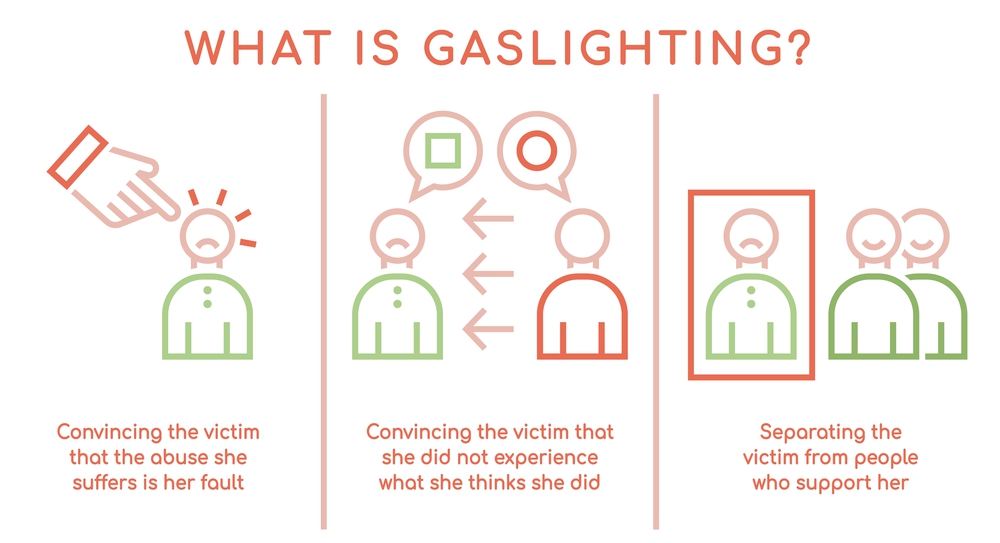 Recognizing Manipulation Tactics
Recognizing Manipulation Tactics
When involved with a narcissist, it's crucial to be aware of manipulation techniques they might use once they know you love them. These can include a range of behaviors intended to undermine your confidence and control the relationship.
Gaslighting and Devaluation
Gaslighting is a calculated form of manipulation where a narcissist will challenge a victim’s reality. They may insist something didn’t happen when it did, or vice versa, causing the person to doubt their memory or perception. Here are key characteristics of gaslighting:
- Denial of Events: The narcissist may outright deny that certain events occurred, insisting they're right and you're wrong.
- Twisting Facts: They often twist details to make you doubt your version of events or believe their lies.
Key Takeaway: Stay alert for inconsistencies in their stories and trust your experiences.
Devaluation comes into play when a narcissist begins to belittle or degrade you. It's a form of control that serves to reduce your self-worth. Indicators include:
- Constant Criticism: Subtle jabs or blatant insults for your character or abilities.
- Comparisons: Making unfavorable comparisons to others, suggesting you don't measure up.
Key Takeaway: Recognize that criticism is a manipulation strategy that does not reflect your worth.
Withholding and Stonewalling
Withholding is when a narcissist intentionally withholds affection, attention, or information to exert control or elicit a particular response. Signs include:
- Selective Silence: Ignoring your attempts at communication, especially when you need it most.
- Affection on Terms: Offering warmth only when it benefits them or suits their agenda.
Key Takeaway: Emotional withholding is not about your shortcomings; it's a tactic to keep you off-balance.
Stonewalling is a refusal to engage in communication and is often a power play. It's a form of emotional shutdown where:
- Silent Treatment: They may give you the silent treatment as a form of blame and punishment.
- Dismissiveness: Your concerns are ignored, treated as unimportant, or met with indifference.
Key Takeaway: Stonewalling is a method to dodge accountability and silence your concerns.
When a Narcissist Feels Challenged
When a narcissist perceives a challenge to their self-esteem or superiority, they may respond with a range of defense mechanisms. These behaviors are often attempts to protect their fragile ego from any perceived threat.
Narcissistic Rage and Retaliation
- Narcissistic Rage: When their sense of superiority is threatened, a narcissist may exhibit intense anger, known as narcissistic rage. This can manifest as:
- Verbal attacks: Detracting or belittling others.
- Aggressive posturing: Physical or psychological intimidation tactics.
- Retaliation: In response to perceived slights, a narcissist might retaliate through:
- Character assassination: Spreading rumors or lies.
- Sabotage: Undermining someone’s efforts deliberately.
Key Takeaway: Retaliation is often a narcissist's tactic to regain control and reaffirm their dominance when challenged.
Projection and Deflection Behaviors
- Projection: A narcissist may accuse others of having their negative traits or shortcomings. They might:
- Deny their flaws while assigning them to others.
- Accuse someone of distorting reality, which is often what the narcissist is doing.
- Deflection: To sidestep responsibility, they often shift the focus by:
- Changing the subject to divert attention.
- Minimizing their role in any conflict or wrongdoing.
Key Takeaway: Projection and deflection serve as defense strategies to shift blame and preserve the narcissist's self-image.
Ending the Relationship
When a narcissist senses deep affection from their partner, the dynamics of the relationship can undergo a drastic shift, often to the detriment of the one who loves them. The end of such a bond typically brings a complex mix of emotions and challenges.
Discarding and Leaving
A narcissist may exhibit a pattern of behavior where they discard their partner once they no longer receive the adulation they desire or feel they have gained all they can from the relationship. This discarding phase can manifest as sudden and without apparent reason, leaving the partner confused and hurt.
- Typical indicators the narcissist is preparing to leave:
- Decreased communication
- Expressing indifference
- Seeking faults in the relationship
The act of leaving may involve:
- Ignoring the emotional attachment and history shared
- Moving on quickly to new interests or relationships
- Displaying a lack of remorse or empathy towards the abandoned partner
Key Takeaway: Discarding is a common, yet painful, end to a relationship with a narcissist, often marked by a lack of closure.

Healing after Narcissistic Abuse
The journey of healing after the end of a relationship with a narcissist is crucial for the well-being of the discarded partner. It entails stages of acceptance and working through the residual emotional attachment.
Steps to foster healing:
- Acknowledge and accept the reality of the situation.
- Seek support from friends, family, or professional therapists.
- Allow time for healing; understand it's a gradual process.
Strategies to rebuild self-esteem:
- Engage in activities that reinforce self-worth.
- Establish boundaries to prevent future emotional harm.
- Redirect focus toward personal growth and self-care.
Key Takeaway: Healing is a time-intensive process that necessitates acceptance of the past and a commitment to rebuilding one's sense of self.
Frequently Asked Questions
Exploring the dynamics of relationships involving narcissists raises several inquiries. This section responds to common questions regarding a narcissist’s reactions when love, rejection, or a change in relationship status is perceived.
How does a narcissist typically behave when they realize someone loves them?
A narcissist, upon sensing someone's love for them, may exhibit behaviors that exploit the relationship. They might intensify their charm and attentiveness to maintain control and feed their ego. On the flip side, they could also show disinterest if the affection does not serve their purpose. Key takeaway: A narcissist's response to love is often self-serving.
Is it common for narcissists to falsely believe they are capable of loving others?
Narcissists may claim they can love others, but their definition of love often lacks real empathy and connection. Their expressions of "love" are usually rooted in what they can receive, not in mutual give-and-take. Key takeaway: Narcissists' concept of love is typically conditional and self-centered.
What are the typical reactions of a narcissist when faced with rejection or a lack of love?
When rejected or not shown love, a narcissist may:
- Lash out with anger or contempt.
- Attempt to manipulate the situation to avoid feeling vulnerable.
They struggle with criticism and can become vindictive. Key takeaway: Rejection often triggers a hostile response from narcissists.
How might a narcissist react when they see their significant other moving on with someone else?
Upon seeing a partner move on, a narcissist's reaction may vary from feigning indifference to aggressive behavior. It's not uncommon for them to:
- Sabotage the ex-partner's new relationship.
- Suddenly express renewed interest in the ex-partner.
Their actions are driven by a bruised ego rather than genuine care. Key takeaway: A narcissist's reaction to an ex moving on is often contradictory and can include attempts to regain attention.
What are some indicators that a narcissist is attempting to re-initiate a relationship?
If a narcissist tries to rekindle a relationship, look for signs such as:
- Persistent contact after a breakup.
- Grand gestures or promises of change.
These are maneuvers to regain control rather than genuine attempts at reconciliation. Key takeaway: Narcissists may use manipulation to re-enter someone's life.
What are the common responses from a narcissist when their partner stops pursuing them or shows independence?
A narcissist might react to a partner's independence with:
- Jealousy and attempts to undermine the partner's achievements.
- Increased efforts to reassert their importance in the partner's life.
They crave being the center of attention and feel threatened by a partner's independence. Key takeaway: Narcissists often discourage their partners' autonomy to maintain dominance in the relationship.

